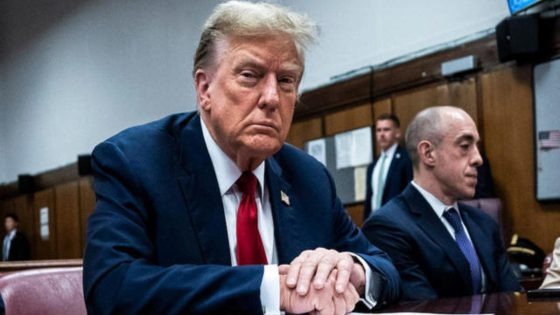It’s well-proven that Emmy winner Jodie Comer excels at accent work.
The actor’s Russian accent as psychopathic assassin Villanelle in “Killing Eve” was so good that playwright Suzie Miller nearly passed on her to star in “Prima Facie” because the play was written for someone from Liverpool. (Comer, is in fact, from Liverpool and ultimately collected an Olivier award, followed by a Tony for her performance). Now, in Jeff Nichols’ latest film, “The Bikeriders,” about the rise and fall of a Midwestern motorcycle club in the 1960s, she puts on a working-class Chicago accent to play Kathy, a strong-willed woman who falls for a free-spirited biker named Benny (Austin Butler) and finds herself competing with Johnny (Tom Hardy), the club’s leader, for his attention and devotion.
The Searchlight movie is inspired by the 1967 photography book “The Bikeriders” by Danny Lyon, who captured the story of the Vandals motorcycle club. He’d recorded interviews with members of the club too, so Comer had about 30 minutes of the real Kathy’s voice to dissect and use as a baseline for her performance.
“With accent work, there’ll be a couple of sentences that are great for certain vowel sounds and I’ll drill them before a scene,” Comer tells Variety.
A good word to get into Kathy’s speech pattern quickly? “Candy-asses,” she quips, as a hint of a Chicago brogue seeps into her Liverpool accent.
Count Nichols among those impressed by Comer’s delivery. “I thought it was the real audio,” the filmmaker said at the film’s Los Angeles premiere. “I’ve been listening to this audio for a decade, and I knew this woman’s voice inside out. Jodie sent me a QuickTime audio [file] of her work and I thought maybe she was starting by playing the real one.”
She didn’t stay in character between takes. “Oh god, no!” she says. “I could never take myself seriously. I wish I could because that would probably be helpful. But when they call, ‘cut,’ I’m Jodie.”
Jodie Comer and Austin Butler in “The Bikeriders.”
©Focus Features/Courtesy Everett Collection
When Comer sits down for our interview at The Bike Shed, an upscale biker bar in downtown Los Angeles, she’s rocking an all-black ensemble. But it’s lacy, not leather, because filming hasn’t turned Comer into a motorcycle enthusiast in real life.
“I definitely have a new appreciation for them,” Comer says. But in real life, she’s accident-prone. “I did snowmobiling once and it was not great — that’s all I’ll say — so, I’m content with not being the person behind the wheel or the handles of a fast-moving vehicle.”
Even though she didn’t pick up a new hobby, “The Bikeriders” was a profound experience. She’d been intrigued from the moment Nichols’ script popped into her inbox — especially since she was a “massive” fan of the “Take Shelter,” “Mud” and “Loving” filmmaker. On her first read, Kathy jumped off the page.
“She was so vivacious. She had very strong opinions and wasn’t scared to share them. She made me laugh,” Comer says. “She feels so singular and authentic.”
The actor dove straight into research, googling Lyon’s photographs to help envision the character. Comer observed that Kathy “wasn’t very put together,” when most of the other women were very “pristine and immaculate and glamorous and fabulous.” Kathy was “little bit more raw,” she says. “What you see is what you get.”
She recalls one photo where Kathy’s “sat outside on the steps of her house, surrounded by seven of the guys, and she’s checking her nails — she always had long red nails” and her hair, which she always wore in a beehive, was a bit mussed up, as if her kids had been pulling on it or she’d just taken a helmet off. In Lyon’s photos, Kathy had a coyness about her, but in the audio she came across self-assured, a dichotomy Comer was eager to explore.
“I felt like it was the first time someone had asked her what she thought and she had a lot to say,” the actor explains. “And that was probably because she was a Vandal, but she was on the periphery, so she had a different perspective and viewpoint. Which makes for an interesting narrator.”
It was Comer’s first time playing a character that narrates the action. “The Bikeriders” filmed in October 2022, between the West End and Broadway runs of “Prima Facie,” a powerful one-woman show starring Comer as a brilliant young barrister. She’s forced to confront the impact of the patriarchy on her personal and professional life when she goes from defending men accused of sexual assault to being assaulted herself. In a sense, the timing was perfect.
“I strangely felt like that’s what I’ve been doing on stage,” Comer says of playing the roles in quick succession. “I was up there alone and everything that Tessa said in the play was all from her perspective. She was painting the picture of the world, and that was exactly what Kathy was doing, so I drew from that.”
Performing the 100-minute play each night also affected her preparation for the film role. “It made me much more comfortable with the amount of dialogue,” she adds. “With theater, your performance is much bigger than what is on film, but Kathy has a vibrancy and an energy to her that I was able to channel with the stage work that I was doing.”

Jodie Comer, Austin Butler, Jeff Nichols and Norman Reedus at the Hollywood premiere of “The Bikeriders.”
Gilbert Flores for Variety
On Comer’s first day of filming, she shot an interview scene with Mike Faist (who portrays Lyon) where Kathy has a lengthy monologue. She was armed with the dialect homework in her back pocket and Kathy’s trusty beehive wig atop her head, but there was still some trepidation as she wondered if all the prep had paid off.
“I feel at home on a film set in many ways, but there’s no denying that when you’re coming on set for the first day, you really want the crew’s approval,” she says. “When you sense that the crew are excited by what they’re making or what you’re doing, that means a lot.”
Her most intense day, though, might’ve been her first scene opposite Hardy, where Kathy and Johnny argue over Benny’s involvement in the club. Their complicated dynamic — a love triangle of sorts — is the central point of tension in the film, as Kathy and Johnny jockey for position in Benny’s heart.
At the beginning of the film, Kathy respects Johnny, often commenting about how he’s got a “proper job and looks after his family.” But over the course of the runtime and “as the club evolves into something much more sinister and dangerous,” Kathy wants Benny to quit riding and settle down, while Johnny hopes he’ll take over one day.
“She can feel she’s losing Benny, and that’s when their relationship becomes quite fraught,” Comer says. “People really like to project on Benny. He’s quite strong willed — which people love, but don’t know how to respect.”
It all comes to a head one afternoon when Kathy comes into the bar to have it out with Johnny. Comer had met Hardy just hours before in the hair and makeup trailer.
“I’ve watched Tom’s work for most of my life, and just being like, ‘Oh, my God, now I have to go in and own this as this woman, and try and put him in his place…’” she says with a laugh. “I just remember there being a real kinetic energy between us. Tom is great; he’s so open and has such clear instincts of his own.”
In the scene, Kathy and Johnny verbally spar over Benny’s love and loyalty, until Johnny thinks he’s got the better of the housewife. But she’s no pushover. “You can’t have him!” Kathy calls over her shoulder as she throws the bar door open and walks out. “I just loved having that last word,” Comer says, grinning. “That was Kathy’s tiny victory.”
Nichols has expressed that a major theme of “The Bikeriders” is the search for identity and how people often turn to groups to define themselves. Comer can relate, as she’s come to recognize the affect playing these characters have on her own sense of self, often exposing parts that need to be dealt with or embraced more.
She brings the conversation back around to “Prima Facie” and the peculiar experience of coming from working on that one-woman show to the predominantly male set of “The Bikeriders.” It was a bit meta — mirroring Kathy’s experiences were as a woman who could hold her own, but lived in a male-dominated era where women had even less rights than today.
“I could feel me making myself small. I was so aware of it, like, ‘Why are you doing this?’ I’d be quite nervous and have these feelings of insecurity,” Comer recalls. “That was something I had to maneuver my way through and realize that it’s actually my duty to show up for myself and take up space.”
Source Agencies




